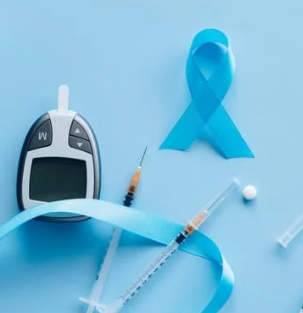Hello from a chilly Boston! I cannot believe we are headed into March. First, I want to start by acknowledging the hard work of those of you on the front lines of healthcare and the mountains you move everyday to keep your patients healthy and well cared for. As we exit UDS Season, I wanted to take a moment to reflect on my observations of this year’s UDS filing period in a post that I recycle and update annually.
It is my sincere hope that this year’s filing was easier than last year’s and you felt more confident than ever about your submission. After thirteen years at Azara, I have come to expect the controlled and sometimes, not so controlled, frenzy in our office this time of year. Of course, with remote and hybrid staff prevalent in Azara’s work environment, I lacked the same in-person visibility to that activity that I had in the pre-Pandemic environment. Nonetheless, those who I see in the office and those I speak with on a regular basis provide me with a good read on the pace and pulse of activity. Anecdotes aside, based on the data and reports on my desk, I remain in awe of the sheer volume of work that was completed by the Azara team between December 1 and the February 15th filing deadline.
For Azara, a company that specializes in data reporting and analytics (including UDS) for Community Health Centers, this period is, by far, our busiest time of year. This year, the number of unique clients accessing support for UDS assistance increased by 20% from past years, letting us know there are more health centers utilizing DRVS for their UDS needs than ever before. Tempers—of both our clients and our staff—sometimes flare, and we dedicate extra staff and hours to ensure we can support all our clients requests in a timely manner. While the support team carries most of the burden these days, almost everyone in the company pitches in to help with something UDS related and unlike the “old days”, I am no longer called upon to get the pizzas for those working through dinner and into the evening. I kind of miss those days, at least a little bit.
UDS this year was consistent with recent years. We saw the ticket volume we anticipated and prepared for, and we did not experience any widespread panic, last-minute madness, or the caffeine-fueled craziness that we’ve experienced in our earlier years. Plenty of clients needed assistance, had questions, or needed something fixed, but it felt methodical and routine.
Of course, I did what I do every year for this blog: I sought answers in the data. Our team received 2,289 UDS-related support tickets in the 3.5 months preceding Feb 15th. To give this some historical perspective, I looked at our support logs and ticket volumes over the years and discovered that in 2018, we closed approx. 700 UDS related tickets, and by 2022 it had doubled to 1,474. With more than 500 FQHC’s currently using DRVS, the number of UDS related questions in 2023/24 is well within our expectations.
In aggregate, these numbers tell me that we (Azara and our clients) are making progress. Our clients are getting a better handle on their data, following their UDS numbers throughout the year and are doing a better job of incorporating data into their everyday health center operations.
For the past 10 years, I have been repeating to Azara clients and prospects: “Those who use their data the most have the best data.” I feel UDS Season is akin to the annual achievement test of this mantra; while I can’t state empirically that this year’s achievement scores rose for all our clients, I’m confident the average increased again.
Clients that use their DRVS data (or any reporting tool) as part of their daily routine are typically well prepared to report UDS, and they find minimal discrepancies with their numbers and performance. This isn’t surprising, because they’ve been viewing data and reports regularly throughout the year—some reports daily. By doing so, these clients can identify data discrepancies early—whether process or product related—and can make fixes well in advance of UDS submission deadlines. In fact, clients that use Azara’s Patient Visit Planning (PVP) report as part of their care planning and delivery are consistently in a much better position than those who don’t, from both a clinical quality perspective as well as a data quality perspective, because the DRVS data is already part of their daily workflow.
Data quality and fidelity require ongoing vigilance. All care providers must promptly and adequately document the care they deliver so they can receive proper credit for their work. In 2018, Azara introduced a set of Data Quality Dashboards with a related group of Measures and Reports to help identify bad EHR data entry or anomalies in data source submissions and we have continued to enhance them. If you have not seen these reports, I encourage you to take a look next time you login to DRVS. Just as a salesperson keeps score by tallying up total sales, providers who regularly monitor their performance know where they stand long before year’s end. They also know—early in the year—if adjustments in processes are needed to improve the full year’s outcomes.
There is one new topic in this year’s blog that I must address, that is UDS+. As many of you know, HRSA has spent the last few years on a UDS modernization program which has turned into UDS+. UDS+ will move annual submission away from the Electronic Handbook (EHB) and require each Health Center to submit de-identified patient data to HRSA so they can calculate measures and stratify data on their own. While participation is optional for calendar year 2023, Azara Healthcare has been actively involved in the UDS modernization discussions and has been approved to submit data for UDS+ to HRSA via FHIR. We are currently working with more than 30 clinics who have elected to have us make this optional submission on their behalf. We are excited to collaborate with our clients, HRSA and their partners in this effort and we look forward to sharing the details and learnings of this experience once complete.
Congratulations to those of you who finished your UDS submission with less effort, pain, and angst than last year. Take comfort in knowing your year-round hard work has paid off. A big shout out to the Azara Team, as they have lowered our average time to close UDS tickets again this year and exited UDS “Season” with an average customer satisfaction score of 4.8/5.0. Lastly, a public service notice to all of you: “It’s not too early to think about next year’s UDS”. Look at your data early and often. Make it part of your workflow. Review the Azara Data Quality and Data Fidelity Webinar (DRVS Help Section) for some useful tips and tricks and don’t be shy about asking your network, PCA or Azara for help.
For more information, check out our upcoming Reflecting on UDS webinar held on Thursday, March 21st at 2:00 PM ET.
Related Articles

Turning Every Encounter into Value: How Azara's EHR Plug-In Elevates Risk Adjustment at the Point of Care
Explore Insights
Value-Based Care Foundations Part 2: A New Chapter in Risk Adjustment
Explore Insights
